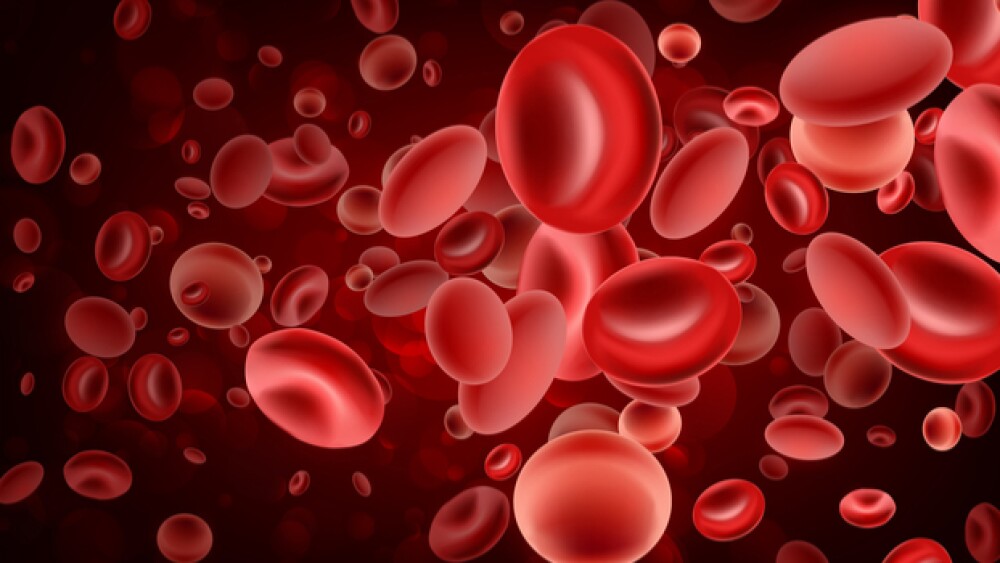The American Society of Hematology Annual Meeting is always chock full of interesting research and development stories. Here’s a look at some of the highlights of the meeting so far, which is continuing today.
The American Society of Hematology (ASH) Annual Meeting is always chock full of interesting research and development stories. Here’s a look at some of the highlights of the meeting so far, which is continuing today.
Gilead Sciences’ Kite Pharmal released two-year data from the ZUMA-1 trial that led to approval of Yescarta in October 2017. The long-term data at a median 27.1 months of follow-up, 39 percent of patients were still responding after a single infusion of the therapeutic. And even more positive, the patient population had yet to reach median overall survival (OS). The overall response rate (ORR) at two years was 83 percent, with 58 percent of patients having hit a complete response (CR).
“The two-year point is another major milestone for Yescarta, which has extended the lives of a significant number of patients in ZUMA-1 and has yielded important learnings that inform further research and development of CAR T therapies,” stated Alessandro Riva, executive vice president, Oncology Therapeutics and head, Cell Therapy, for Gilead.
Novartis also presented longer-term analyses of its CAR-T therapy, Kymriah, in two pivotal clinical trials, ELIANA and JULIET, in children and young adults with relapsed or refractory (r/r) acute lymphoblastic leukemia (ALL) and adults with r/r/ diffuse large B-cell lymphoma (DLBCL), respectively.
In the 24-month follow-up of the ELIANA trial, the drug showed deep and durable responses without additional therapy in a significant chunk of the patient. Among 79 patients who could be evaluated, who were followed for at least three months or discontinued earlier, 82 percent had a complete response (CR) or CR with incomplete blood count recovery (CRi) within three months of infusion. Of those responding, 98 percent had negative minimal residual disease (MRD-).
In the 19-month analysis from the JULIET study, patients showed prolonged durability of response in patients who had previously had multiple rounds of chemotherapy and unsuccessful stem cell transplants. The overall response rate (ORR) after a median of 19 months of follow-up was 54 percent among patients who were followed for at least three months or discontinued later.
Regeneron Pharmaceuticals presented new data for REGN1979 in patients with relapsed or refractory (r/r) B-cell non-Hodgkin lymphoma (B-NHL), as well as promising clinical data in follicular lymphoma (FL) and DLBCL. It was a Phase I proof-of-concept trial, and the drug showed an acceptable safety and tolerability profile with no dose-limiting toxicities (DLTs) observed. In heavily pre-treated patients with r/r/ FL grades 1 to 3a who received doses of the drug ranging from 5 mg to 40 mg, there was a 100 percent overall response rate (ORR) in eight patients and two partial responses (PR). Of the responders, 90 percent held a response during treatment. The company indicated it will start a registrational Phase II trial in 2019.
Celgene and bluebird bio presented initial data from their ongoing Phase I clinical trial of bb21217, a next-generation anti-B-cell maturation antigen (BCMA) CAR-T therapy for relapsed/refractory multiple myeloma. The patient population had received at least three prior treatments, including a proteasome inhibitor and immunomodulatory agent, or are double refractory.
Twelve patients in the study received bb21217. Of those 12, 83 percent had an objective clinical response by International Myeloma Working Group (IMWG) criteria. At the time of the data analysis, there were ongoing responses in nine out of 10 patients, including three with a complete response (CR) or stringent complete response (sCR), and two reported a very good partial response (VGPR) and four had a partial response (PR).
Celgene and Acceleron Pharma also released data from their Phase III MEDALIST clinical trial evaluating luspatercept in patients with ring sideroblast (RS+) myelodysplastic syndromes (MDS)-associated anemia who require red blood cell transfusions who had failed, were intolerant to, or ineligible for erythropoietin therapy.
The trial met its primary endpoint of RBC transfusion independence (RBC-TI) for eight or more weeks during the first 24 weeks of the trial. It resulted in a statistically significantly greater proportion of patients achieving RBC-TI greater than or equal to eight weeks compared to placebo.
And, Celgene announced results from its Phase III AUGMENT trial, showing that Revlimid (lenalidomide) in combination with rituximab showed superior progression-free survival (PFS) in relapsed/refractory indolent lymphoma compared to people who received rituximab plus placebo. The median PFS in patients receiving the combination was 39.4 months compared to 14.1 for those who received rituximab and placebo.
Overall survival (OS) was a secondary endpoint, which showed a positive trend in the Revlimid-rituximab arm compared to the control arm, with a two-year OS rate of 93 percent compared to 87 percent. Overall response rate (ORR) was another secondary endpoint, and it was 78 percent in the Revlimid-rituximab arm compared to 53 percent in the control arm.
Also, Seattle Genetics released data from three ongoing clinical trials evaluating the combination of Adcetris (brentuximab vedotin) and Opdivo (nivolumab). One was initial data from a Phase II trial of the combo in r/r primary mediastinal large B-cell lymphoma. The others were data from an ongoing Phase I/II clinical trial of the combo in r/r classical Hodgkin lymphoma, and initial data from a Phase II of the combo with Adcetris, Opdivo an bendamustine in children, adolescents and young adults with r/r classical Hodgkin’s lymphoma.
“Our goal with Adcetris is to identify the most effective treatment strategies to improve the outcome of patients, and the combination of Adcetris and Opdivo has demonstrated enhanced activity with tolerable safety profile in Hodgkin lymphoma and now a type of non-Hodgkin lymphoma called primary mediastinal large B-cell lymphoma, or PMBL,” stated Roger Dansey, the company’s chief medical officer. “In the Hodgkin lymphoma setting, Adcetris plus Opdivo data continue to support investigation of this combination regimen in multiple ongoing studies.”
Click here to see thousands of life science jobs on BioSpace’s job board.





